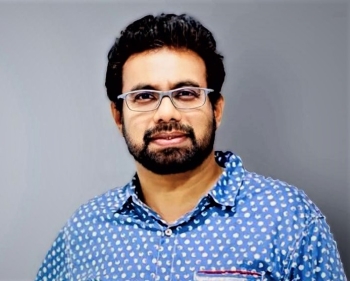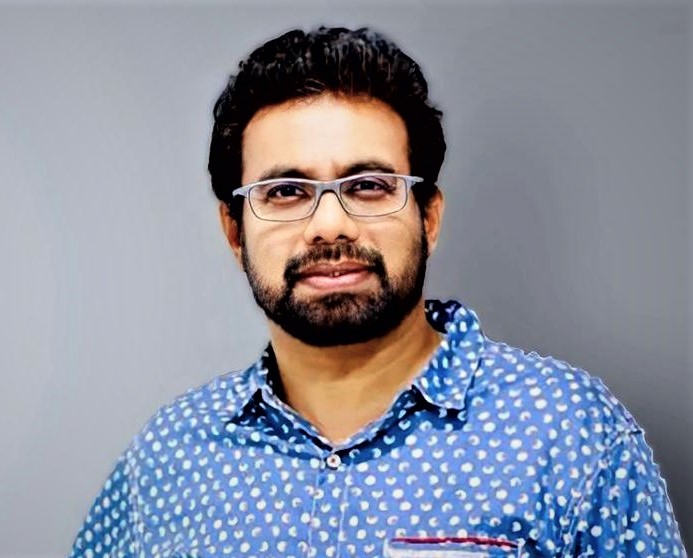
 A. J. Philip
A. J. Philip

John Brittas is a Member of Parliament (Rajya Sabha) from Kerala. He belongs to the Communist Party of India (Marxist). He was in a five-member team that included fellow MP, Binoy Viswam. They spent four days traversing Manipur, immersing themselves in the relief camps, and engaging with the people. This hands-on approach allowed them to gain invaluable insights into the ground realities and to forge a genuine connection with a cross-section of the Manipuri society.
In a candid and free-wheeling interview with senior journalist A J Philip, Brittas shared his profound experiences and reflections from his visit. He shed light on the challenges faced by the affected communities, the urgent need for comprehensive relief measures, and the broader policy changes required to safeguard the future of the people there.
Q: How was your journey inside Manipur?
A: We reached Imphal by air. It was difficult to travel inside the state as there were roadblocks by the Meitei women in their areas and by the Kukis in their areas. We had many local people to support us, especially those who studied at Jawaharlal Nehru University (JNU). We also had the benefit of police escort. We used the helicopter service available to reach the hilly regions of the state.
Q: Where did you go in Imphal?
A: We visited a few relief camps in the Capital. I realised one thing. Human tragedy is the same everywhere. They were people who lost everything they had. Some of them lost their kith and kin. Almost all of them lost their houses and worldly possessions. More importantly, they lost their livelihoods. They were people staring into the dark.
Q: You would have visited relief camps set up in the wake of natural calamities like the floods in Kerala in 2018. What was the difference that you found in the Manipur camps?
A: In natural calamities, the victims do not lose hope. They can return to their habitat and rebuild their lives. But in Manipur, they have been displaced from their area. Their houses have been burnt. The neighbours are no longer the same. They cannot even hope to return to their places. They are also fearful. The tragedy is worse.
Q: How are the relief camps run in Manipur?
A: The relief camps, be they in Meitei area or Kuki area, are run by voluntary agencies in a haphazard manner. The presence of the state is minimal, unlike in natural calamities when arrangements are made by the district administration. There are now nearly 55,000 people in relief camps. I found many lactating women and their condition is the worst. A piece of cloth separates a family from another. Children have nowhere to go. They don’t have books, slates and pencils. They roam in the area. Though the schools have been officially opened, there is not even 10 percent attendance. Most of the camps are in school buildings. Where will the people go if they are evicted from there?
Q: What is the role of the state government in all these?
A: I am sorry to say that I found the state government missing. Many said that the government was the problem. Only a small section of the Meiteis support Chief Minister Biren Singh. All others say that he has forfeited his right to continue as Chief Minister. His own party men question his bona fides. The looting of police weapons and the indiscriminate use of them suggest complicity at the highest level.
Q: Did you visit Chief Minister Biren Singh?
A: There was an ethical question involved. Having taken a stand that he should not continue as Chief Minister, how could we call on him and discuss with him the problems of the people? We consider him as one of the biggest problems. That is why we did not visit him, though many of our friends suggested that we visit him.
Q: How was your visit to the Governor?
A: Since we decided against meeting the Chief Minister, we decided to call on the Governor, Smt Anusuiya Uikey. She is a tribal from Madhya Pradesh. She told us that she had never seen such a tragedy in her life. She was very sympathetic to the people who are suffering. She told us about her limitations. All we could do was to remind her about her constitutional responsibilities to ensure peace and tranquility in the state where the multi-ethnic people have been coexisting for centuries.
Q: Did you face any communication problems in Manipur?
A: Our mobile phones were functional. The Internet shutdown was one of the most foolish decisions taken by the government. People lost their connection with the outside world. When truth is suppressed, falsehood takes over. The shutdown has given rise to rumours. As I mentioned, some of the relief camps are run by the community leaders. They try to instill passions among the refugees, instead of dousing them. The Internet should be made accessible. Let the truth come out.
Q: Do you recommend the President's rule in Manipur?
A: The BJP is one party which asks for President’s rule if one or two persons are killed in an incident in any state ruled by a non-BJP party. More than 140 people have so far been killed and yet the BJP did not think of imposing President’s rule. The BJP is fond of replacing its chief ministers. In Gujarat, for instance, the party changed the chief minister several times after Narendra Modi shifted to New Delhi. That the party is not prepared to change Biren Singh is deeply suspicious.
Q: What is the public perception about the Prime Minister’s silence?
A: Oh, this is something that worries people. Everybody, including the PM’s closest supporters, is agitated over Narendra Modi’s silence. He is known for his loquaciousness but he has not yet said a word on the tragedy that has been unfolding in the state for more than two months. This gives rise to suspicion. One question the Manipuris ask is: Are we not Indians? They also ask: Are we orphans? A cross-section of the people visited us at the hotel where we stayed. They were all agitated over Modi’s silence.
Q: Any thoughts on the international ramifications of the tragedy?
A: We cannot lose sight of the fact that Manipur has an international border. What is happening in the state is being watched by the people in the rest of the Northeast. Sooner than later, there will be reactions. The best interests of the nation demand that the Centre take steps to restore peace in the state.
Q: What is the public perception about Home Minister Amit Shah’s visit to Manipur?
A: His visit was a total flop. He asked for the surrender of arms. The fact is that nobody, save a few, responded to his appeal. His Peace Committee is a still-born child. Despite so much of violence, killing and looting, only 150 people have been arrested. I attended the all-party meeting held in Delhi. I got the figure at that time. If there is a fracas between two groups of people in Kerala, more people would be arrested by the police. Allowance also has to be made for the fact that Imphal is home to the Assam Rifles. Yet, violent incidents happened all around their headquarters. I believe that no riot can continue beyond 48 hours without the connivance of those in power. The violence in Manipur could have been suppressed within a few hours, if the state had the determination to do so.
Q: Did you find anything new or different from the narratives that emanate from Manipur?
A: Yes, most reports from Manipur mention the High Court order, the reservation issue and how the riots began with an accident. They do not mention how the Sangh Parivar has been vitiating the atmosphere over the decades. The Northeast is home to about 600 ethnic groups. Of course, they have their fights but they were never communal. There are so many Sangh Parivar outfits active in the Northeast. They pit tribe against tribe on communal and other issues. They have also been busy creating new narratives. They spread the story that Krishna’s consort Rukmini was from Arunachal Pradesh. Another story has it that Arjun’s wife Chitrangana was from Manipur. Some years ago, a programme was organised in Gujarat to bring the East and the West together. It was to disprove Rudyard Kipling’s theory that East shall never meet the West in his poem The Ballad of East and West. Incidentally, Biren Singh was one of the persons who attended the Gujarat meet. There is reason to believe that what happened in Manipur is the result of the systematic campaign of the Sangh Parivar.
Q: Did you find a reflection of the communal agenda in Manipur?
A: Oh, yes. We met the head of the Catholic Church in Manipur. He is a septuagenarian. He knows the state like the lines on his palm. He is shocked by what happened in the state. He could never imagine that what happened could happen. We visited a Catholic School. It had about 5,000 students. Over 95 percent of the students were Meiteis. Yet, the school was not spared. It has an auditorium. It was destroyed completely. Gas cylinders were used to burn it down. The communal nature of the violence was very clear. We also visited another school run by a Malayali sister, Annie. It’s a stone’s throw from the Imphal airport. It has a chapel, more or less like a church. It was destroyed completely. The communal agenda is clear.
Q: What is the solution?
A: Separation is what the extremists on both sides want. We are not for separation. What if the Nagas and the Kukis separate? Can the state be divided further? What about the demand for a Greater Nagaland? These are all difficult questions for which no easy answers can be found. What is necessary is to restore peace. Violence must end. Those who lost their houses should be enabled to have new houses. They should be able to rebuild their lives. For that, confidence has to be built among them. We want restoration of Manipur as it existed three months ago. Any step in that direction is welcome.